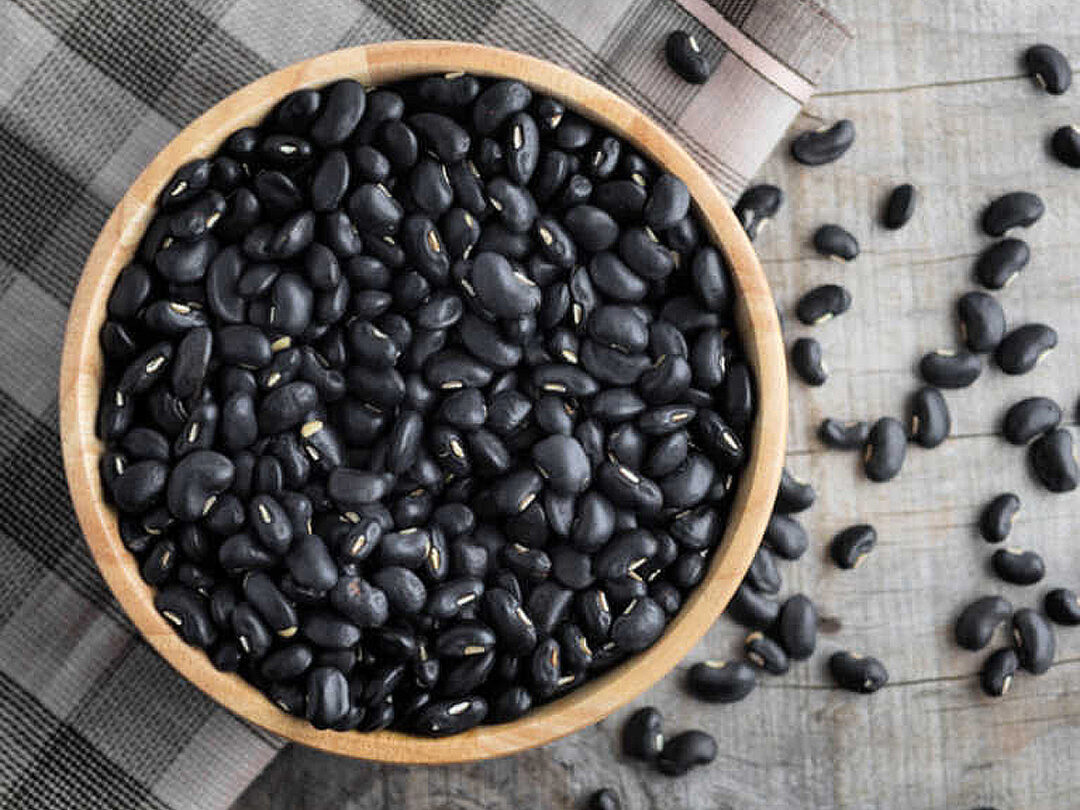Black beans may be small, but they’re powerhouse ingredients that can help you lose weight, keep your gut healthy, improve your heart health and more.
As a protein-rich, fibre-filled legume variety, black beans have a ton of potential. They can be a side dish or a main, a topping or the star of any recipe. Whether you like your black beans served alongside flavourful rice, as a swap for meat inside tacos or sandwiched between buns as a burger patty, it’s hard to deny just how adaptable this plant-based ingredient is.
No matter how you like to eat black beans, this dark legume is more than merely versatile. It’s full of nutrients that are great for your heart, your gut, your blood sugar and even health factors that play a role in your risk for different diseases.
Keep reading to learn just how great black beans are for your health.
1. Black beans can help you lose weight
Beans are notoriously rich in fibre, and black beans are no different from any other variety. A one-cup serving of cooked black beans offers 15 grams of fibre. Adults should aim to get 25 to 30 grams daily – which means black beans can offer 50 percent or more of your daily recommended total.
And that high fibre content can actually help you lose weight. Fibre is filling, and it helps you feel fuller for longer. Eating black beans could curb your appetite, filling you up with plenty of fibre between meals. That, in turn, can help you either maintain your weight or lose weight, depending on your goals.
Additionally, fibre plays another role in weight loss. Dietary fibre works as a bulking agent in your digestive system, which means it binds to fat and pulls more fat into your waste. It literally “bulks up” your waste and helps you remove more as your body digests food. In turn, this can lower your overall calorie consumption, which plays a key role in weight loss.
2. Boost heart health with black beans
The very same fibre that makes black beans a good choice for weight loss also has a positive impact on your heart health. Black beans have been found to lessen some of the key factors that increase your risk for heart disease.
Eating fibre-rich black beans has been shown to help lower high cholesterol levels. Specifically, these beans can lower both your total cholesterol and LDL cholesterol, or your “bad” cholesterol. This can decrease your risk for plaque buildup in your arteries, which can ultimately lead to blockages – and dangerous concerns like heart attacks and strokes.
Black beans also contain quercetin, a plant polyphenol that naturally works as an anti-inflammatory nutrient. Incorporating quercetin into your diet can help lower your chances of developing atherosclerosis, or artery buildup and plaque that can happen as the result of high cholesterol.
There’s one more way that black beans can help your heart health. They contain potassium, calcium and magnesium, three minerals that have been proven to naturally decrease blood pressure. High blood pressure can contribute to an increased risk of cardiovascular disease, along with other conditions. These legumes are also naturally low in sodium, which plays a role in blood pressure levels. Just make sure if you’re choosing canned beans that you’re opting for a no- or low-sodium and BPA-free product.
3. Your gut health improves with black beans
Here’s yet another advantage that comes from black beans’ fibre: better gut health.
Black beans don’t contain just any kind of fibre. They provide resistant starch, a dietary fibre that doesn’t break down when it moves through the digestive system. Instead, it stays whole. As your gut tries to break down that resistant starch, your gut microbiota create short-chain fatty acids – kickstarting the fermentation process. Overall, this fermentation process can help you achieve better gut health with a good balance of “good” gut bacteria. It can also help reduce your body fat, playing a role in weight loss.
4. Black beans are a diabetes-friendly food
If you’re diabetic, you may already know that black beans are a low-glycemic food. While this particular bean variety does contain carbohydrates, its high protein content and low glycemic index makes it very diabetes-friendly.
In general, fibre is great for individuals living with either type 1 or type 2 diabetes. Research studies have found that high fibre diets can lower blood sugar levels for type 1 diabetics, and fibre also helps improve blood sugar, lipids and insulin levels in type 2 diabetics.
And black beans can offer a good amount of fibre. Whether you’re living with diabetes, are diabetic or worry about your risk for developing diabetes, black beans may be able to help manage blood sugar spikes and improve your overall health. Research shows that black beans can significantly lower your insulin levels after eating, which helps you maintain healthy, controlled blood sugar levels.
Add black beans into all kinds of meals
With so many health benefits, black beans deserve a place in your pantry and on your plate. These fibre-rich legumes offer a good amount of protein, and they’re versatile enough to be used as an ingredient or the highlight of a dish. As a plant-based food, black beans can even work as a swap for animal-based proteins.
Wondering whether canned or dried beans are the better choice when it comes to your health? You’ll get the very same benefits regardless of which kind you use. Just make sure you’re checking the sodium content on canned beans, as high sodium can cancel out many of the natural advantages black beans offer.
Source: Vegetarian Times





No Comments